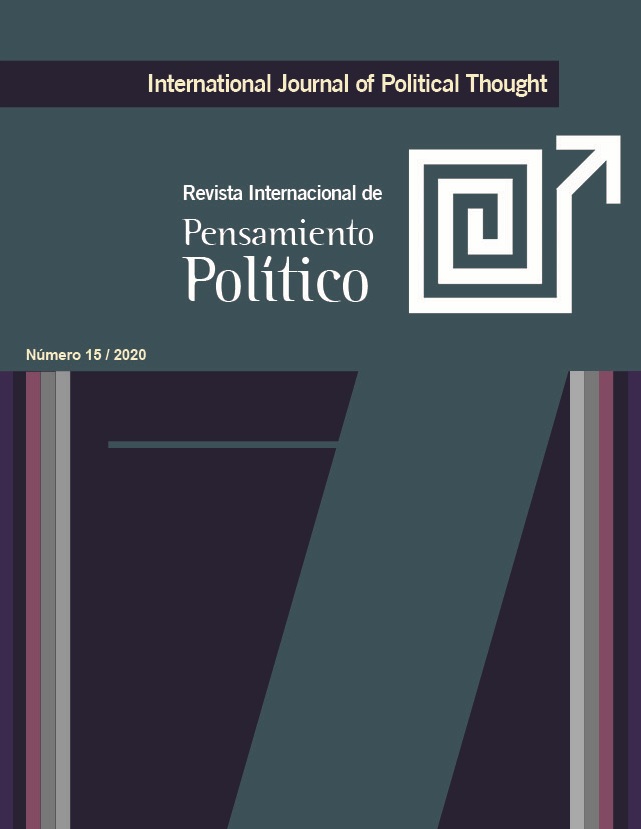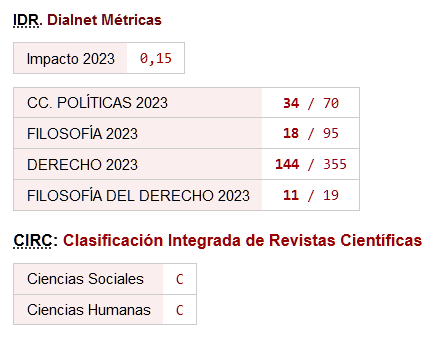The Condition of the Post-Keynesian Worker: the Precariat against the Neoliberal Counterrevolution
DOI:
https://doi.org/10.46661/revintpensampolit.5611Keywords:
work, proletariat, cognitariat, precariat, neoliberalismAbstract
This essay analyses the situation of wage labour after the neoliberal offensive against the welfare state and the forms of organization of the working class. To do this, the most relevant theories about changes in the world of work since the 1970s are reviewed. Special attention is paid to Standing’s precariat and the criticism it has generated in order to weigh its potential as a revulsive against the power of the neoliberal counterrevolution. Finally, the use of the concepts of precarity and precariat is suggested as an interpellation that agglutinates different social fractions in the current cycle of labour and social struggles.
Downloads
References
Alberti, G., Bessa, I., Hardy, K., Trappmann, V. y Umney, C. (2018). “In, against and beyond precarity: Work in insecure times”. Work, Employment and Society, 32(3), pp. 447-457.
Allen, K. (2014). “The Precariat: New class or bogus concept?”. Irish Marxist Review, 3(9), pp. 43-53.
Alonso, L.E. (2007). La crisis de la ciudadanía laboral. Barcelona: Anthropos.
Alonso, L.E. (1999). “Crisis de la sociedad del trabajo y ciudadanía: una reflexión entre lo global y lo local”. Política y Sociedad, 31, pp. 7-35.
Bell, D. (1994). El advenimiento de la sociedad post-industrial. Madrid: Alianza.
Berardi, F. (2005a). “Del intelectual orgánico a la formación del cognitariado”. Archipiélago, 66, pp. 57-68.
Berardi, F. (2005b). “What does cognitariat mean? Work, desire and depression”. Cultural Studies Review, 11(2), pp. 57-63.
Bourdieu, P. (1998). “La précarité est aujourd’hui partout”. En Contre-feux. Propos pour servir à la résistance contre l’invasion néolibérale, pp. 95-101. Paris: Raisons d’agir.
Breman, J. (2013). “A bogus concept?” New Left Review, 84, pp. 130-138.
Butler, J. (2010). Marcos de guerra. Las vidas lloradas. Madrid: Paidós.
Butler, J. (2004). Precarious life. The powers of mourning and violence. London, New York: Verso.
Castel, R. (1997). La metamorfosis de la cuestión social. Una crónica del salariado. Buenos Aires: Paidós.
Castillo, J.J. (2005). El trabajo recobrado: Una evaluación del trabajo realmente existente en España. Madrid: Miño y Dávila.
Doogan, K. (2009). New capitalism? The transformation of work. Cambridge: Polity Press.
Gorz, A. (1999). Reclaiming work. Beyond the wage-based society. Cambridge: Polity Press.
Gorz, A. (1995). Metamorfosis del trabajo. Madrid: Sistema.
Gorz, A. (1982). Adiós al proletariado. Más allá del socialismo. Barcelona: Ediciones 2001.
Harvey, D. (2007). A brief history of neoliberalism. New York: Oxford.
Jones, O. (2016). Chavs. The demonization of the working class. London: Verso.
Kasmir, S. (2018). “Precarity”. En F. Stein, S. Lazar, M. Candea, H. Diemberger, J. Robbins, A. Sánchez, y R. Stasch (Eds.), The Cambridge Encyclopedia of Anthropology.
Laparra, M. (2006). La construcción del empleo precario. Dimensiones, causas y tendencias de la precariedad laboral. Madrid: FOESSA, Cáritas Española.
Lazzarato, M. (2004). “La forme politique de la coordination”. Multitudes, 3(17), pp. 105-114.
López, I. y Rodríguez, E. (2010). “De la crisis económica a la crisis social”. En Fin de ciclo. Financiarización, territorio y sociedad de propietarios en la onda larga del capitalismo hispano (1959-2010), pp. 439-476. Madrid: Traficantes de Sueños.
Lorey, I. (2016). Estado de inseguridad. Gobernar la precariedad. Madrid: Traficantes de Sueños.
Marshall, T.H. (1997). “Ciudadanía y clase social”. Reis, 79, pp. 297-344.
Munck, R. (2013). “The precariat: A view from the South”. Third World Quarterly, 34(5), pp. 747-762.
Neilson, B. y Rossiter, N. (2008). “Precarity as a political concept, or, fordism as exception”. Theory, Culture & Society, 25(7–8), pp. 51-72.
Oudenampsen, M. y Sullivan, G. (2004). “Precarity and N/European identity: An interview with Alex Foti (ChainWorkers)”. Mute. https://www.metamute.org/editorial/articles/precarity-and-neuropean-identity-interview-alex-foti-chainworkers
Scully, B. (2016). “Precarity North and South: A southern critique of Guy Standing”. Global Labour Journal, 7(2), pp. 160-173.
Sennett, R. (2011). The corrosion of character. The personal consequences of work in the new capitalism. New York: W. Norton & Company.
Seymour, R. (2012). “We are all precarious: On the concept of the precariat and its misuses”. New Left Project. https://www.patreon.com/posts/we-are-all-on-of-37918050
Smith, C. y Pun, N. (2018). “Class and precarity: An unhappy coupling in China’s working class formation”. Work, Employment and Society, 32(3), pp. 599-615.
Standing, G. (2016). “The precariat, class and progressive politics: A response”. Global Labour Journal, 7(2), pp. 189-200.
Standing, G. (2015). “The precariat and class struggle”. RCCS Annual Review, 7, pp. 3-16.
Standing, G. (2014). “Por qué el precariado no es un concepto espurio”. Sociología del Trabajo, 82, pp. 7-15.
Standing, G. (2011). The Precariat. The new dangerous class. London: Bloomsbury Academic.
Tarì, M. y Vanni, I. (2005). “On the life and deeds of San Precario, Patron Saint of Precarious Workers and Lives”. Fibreculture, 5.
Van der Linden, M. (2014). “San Precario: A new inspiration for labor historians”. Labor: Studies in Working-Class History of the Americas, 11(1), pp. 9-21.
Downloads
Published
How to Cite
Issue
Section
License

This work is licensed under a Creative Commons Attribution-NonCommercial-ShareAlike 4.0 International License.
Open access policy
Free and open access is allowed to any interested party to all the contents of the journal issues, free of charge, being able to print and transfer all the articles, with the only condition of specifying the source and authorship.
The journal: a) does not charge authorship costs for the processing of articles or for their submission, b) maintains copyright for authors without restrictions, c) facilitates authors to keep their publication rights without limitations.
The International Journal of Political Thought is an original work of the Laboratory of Political Ideas and Practices of the Pablo de Olavide University. All articles included in the Journal are original work of their respective authors. This Journal is freely offered to the scientific and academic community at no cost and releases the contents according to the license "Attribution-NonCommercial-ShareAlike 4.0 CC BY-NC-SA" of the Creative Commons project available in the following url: https://creativecommons.org/licenses/by-nc-sa/4.0/legalcode
If you wish to translate or compile any of the articles available here, please contact us at contacto












 ISSN: 1885-589X
ISSN: 1885-589X  Universidad Pablo de Olavide
Universidad Pablo de Olavide